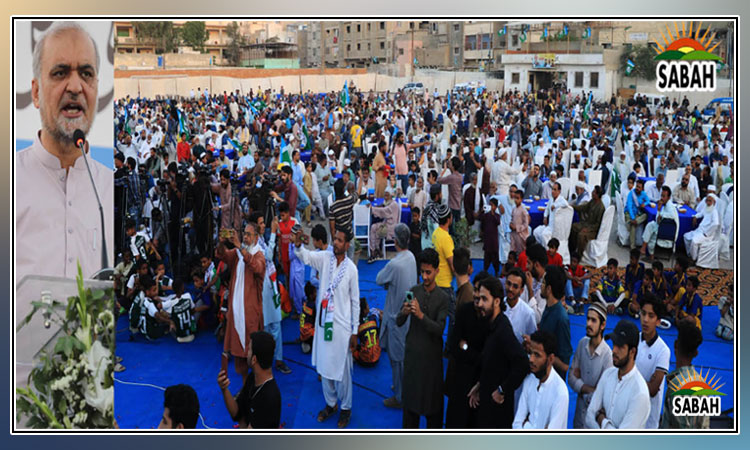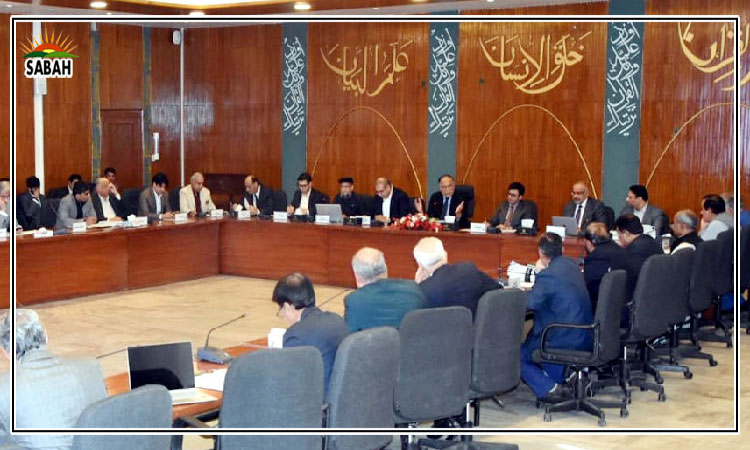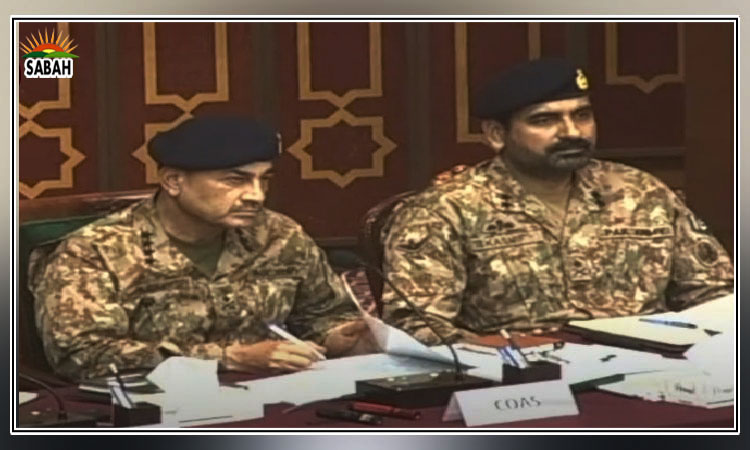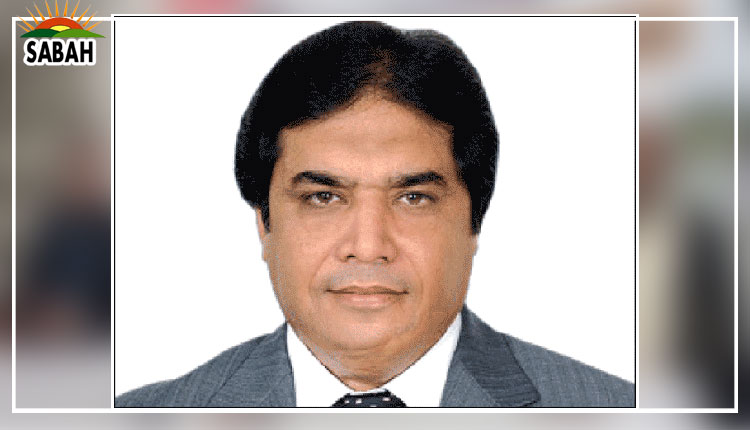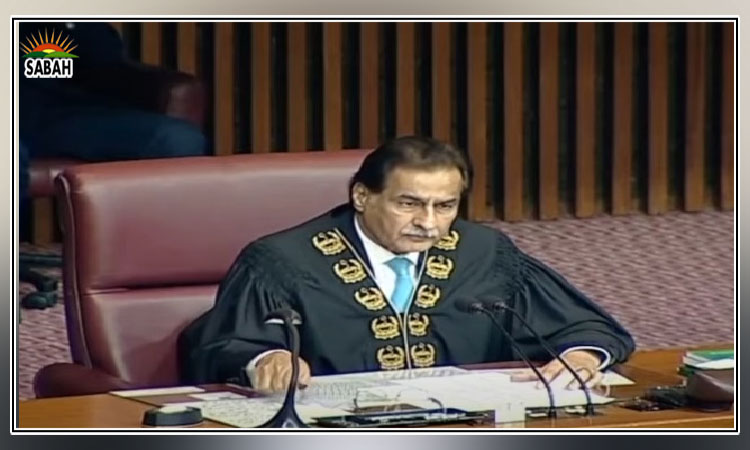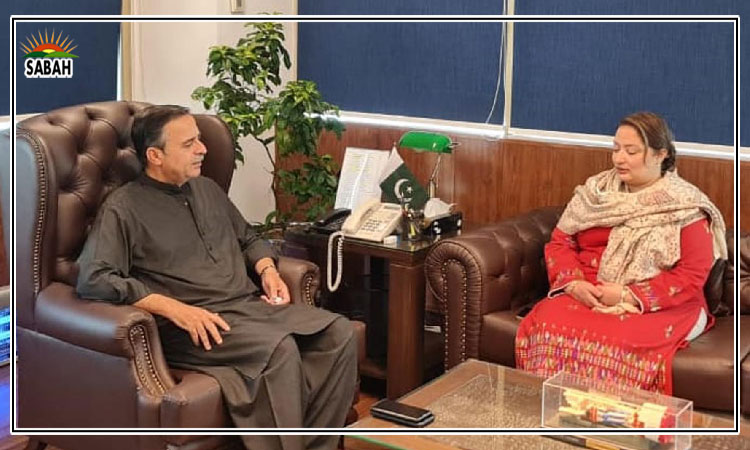The 90-day debate۔۔۔۔ Salman K Chima
Many eminent lawyers have expressed the view that any delay in provincial elections beyond 90 days from the dissolution of the Punjab and Khyber Pakhtunkhwa assemblies would constitute a violation of the constitution. They rely on Article 224(2): When the National Assembly or a Provincial Assembly is dissolved, a general election to the Assembly shall be held within a period of ninety days after the dissolution.
These voices are well aware of Article 254: When any act or thing is required by the constitution to be done within a particular period and it is not done within that period, the doing of the act or thing shall not be invalid or otherwise ineffective by reason only that it was not done within that period. But they argue (correctly, in my opinion) that this does not give licence to anyone to deliberately violate the timeframe stipulated in the constitution. Thus, if any justification must be found to deviate from the timeframe in Article 224(2), that cannot emanate from Article 254.
This raises the question: are there any circumstances in which the constitution may itself envisage a delay in elections beyond 90 days? Article 232 mentions one such possibility. It states that where a grave emergency exists in which the security of Pakistan, or any part thereof, is threatened by war [which may arguably include war on terror] or external aggression, or by internal disturbance beyond the power of a provincial government to control, the president [acting on the advice of the prime minister] may issue a Proclamation of Emergency, through which certain functions of the province would stand transferred to the federation.
For our purposes, Article 232(8) is of special interest: If the National Assembly stands dissolved at the time when a Proclamation of Emergency is issued, the proclamation shall continue in force for a period of four months but, if a general election to the assembly is not held before the expiration of that period, it shall cease to be in force at the expiration of that period unless it has earlier been approved by a resolution of the Senate.
How can that be, if Article 224(2) creates an absolute rule that elections to the assembly must always be held within ninety days of dissolution? This suggests that Article 224(2) may not implement any such absolute rule else, the constitution would not mention the clear possibility of election to the National Assembly taking place beyond 90 days of dissolution. Incidentally, Article 234(4) also separately envisages a situation in which the election to the National Assembly may not be held within the period prescribed by Article 224(2).
Next, looking at it from a different perspective altogether: Article 224(2) envisages election within 90 days of the dissolution of the assembly; but what if the dissolution itself is unconstitutional? Would that still trigger the requirement to hold elections within 90 days? To take a cricketing analogy, when the bowler delivers a no ball, all other rules are suspended and the batter cannot be given out even though the ball may hit the stumps, etc. Likewise, what happens when the chief minister delivers a no ball by dissolving the assembly unconstitutionally?
The question is only worth exploring if it is established that the Punjab and KP assemblies were dissolved illegally even though, in either case, it was the duly elected chief minister who advised the dissolution. Interestingly, our courts have addressed this issue before.
In PLD 1989 Quetta 25, the court observed that the dissolution of Assembly which has been elected after going through the election process does not entail a pure political question as a vested right has accrued to the members of the provincial assembly, as well as the electorates and it would amount to an erosion of their civil rights [if] an important organ of the state was demolished. It was further held: Under Article 107 of the constitution, duration of a provincial assembly is five years. Therefore, dissolution of a provincial assembly before its constitutional period must be justified on definite reasons provided by the constitution.
Holding an election is a cumbersome job. A lot of expenditure is involved. The entire government machinery is geared up to complete the election process, therefore, extraordinary powers of dissolution of Assembly, must be exercised carefully, faithfully and in accordance with the provisions of the Constitution.
Similarly, in PLD 1993 Lahore 595, the Lahore High Court held: We are not impressed with the contention that to advise dissolution of the assembly is [the] absolute, unfettered and unbridled prerogative of the chief minister even if it is mala fide. In law, no right, however high, can be claimed to be absolute, unguided and arbitrary, so as to defeat the purpose of law and constitution. In an Islamic State the sovereignty belongs to Allah Almighty and is a sacred trust with those to whom it has been entrusted as trustees. They must discharge their functions and exercise their powers within the limits prescribed by Allah Almighty and for the good and welfare of people in accordance with the constitution and the law. The constitutional provisions, when read as a whole, lead to the indubitable conclusion that any such breach of trust is open to judicial scrutiny, by the superior courts to that limited extent.
Thus, there is no power under the constitution which may be exercised unreasonably or arbitrarily, and this applies to the power to dissolve the assembly, no less. In particular, where dissolution of an assembly is advised without offering any reason at all (as with the Punjab and KP assemblies); or is carried out on the dictation of an outsider, to achieve a purpose not envisaged by the constitution (to force a national election somehow); or where it would impose an immense (and otherwise avoidable) burden on the exchequer, when the country is threatened with default and no well-meaning chief minister ought to think of dissolving the assembly in such circumstances, it would be fair to treat the dissolution as illegal and the equivalent of a no ball.
If so, should the period of 90 days under Article 224(2) apply? One must leave this for the courts to answer in their better wisdom, but it seems that where an assembly has been dissolved without any objective justification, and in circumstances where it would hurt the country to hold immediate elections, to insist that elections must still be held within 90 days is not as clear a proposition as may seem at first sight. It is open to debate whether the constitutional timeframe is intended to apply where the dissolution of the assembly is unconstitutional and holding fresh elections right away is not financially affordable.
One option to deal with the current situation would be to undo the illegal dissolutions. But that seems unfeasible at this late stage, and would also amount to handing over provincial control to the very characters who deliberately violated the constitution. Incidentally, in anticipation of the illegal dissolution of the Punjab Assembly, I approached the Lahore High Court (with the prayer that the court must structure the exercise of discretion by the chief minister), but the court verbally expressed the view that the petition was premature as there was no impugned order.
A fresh petition was filed as soon as the chief minister advised dissolution of the assembly, but this invited the objection that a certified copy of the chief ministers order was not attached.
The other option, if we entertain the possibility that the dissolution of the assemblies was unconstitutional, is for the respective governors to report that a situation has arisen in which the government of the province cannot be carried on in accordance with the provisions of the constitution, whereupon the president [acting on the advice of the prime minister] may assume or direct the governor to assume all or any of the functions of the government of the province, etc under Article 234 (including suspension of provisions of the constitution relating to anybody or authority in the province, other than powers vested in the high court). Such a situation could continue (or a fresh proclamation may be passed, if necessary) until the holding of the general elections (concurrently, for the national and all provincial assemblies), as that is the only justifiable option under the present economic circumstances.
The writer is a Lahore-based lawyer. He can be reached at: salmanchima@gmail.com
Courtesy The News


